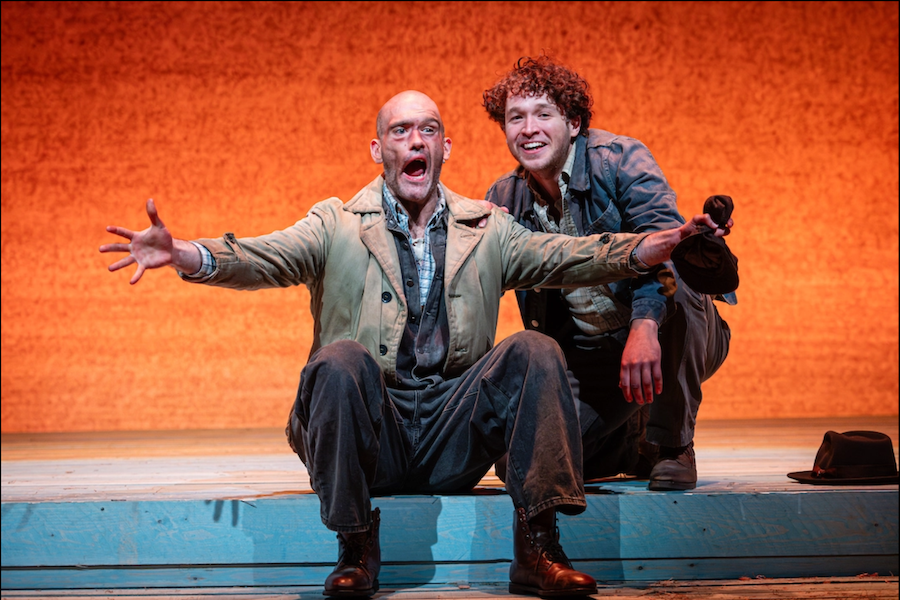Review: Bernstein’s Mass at the Bridgewater Hall is ‘powerful, emotive and a triumph’
- Written by Thom Bamford
- Last updated 2 years ago
- Music
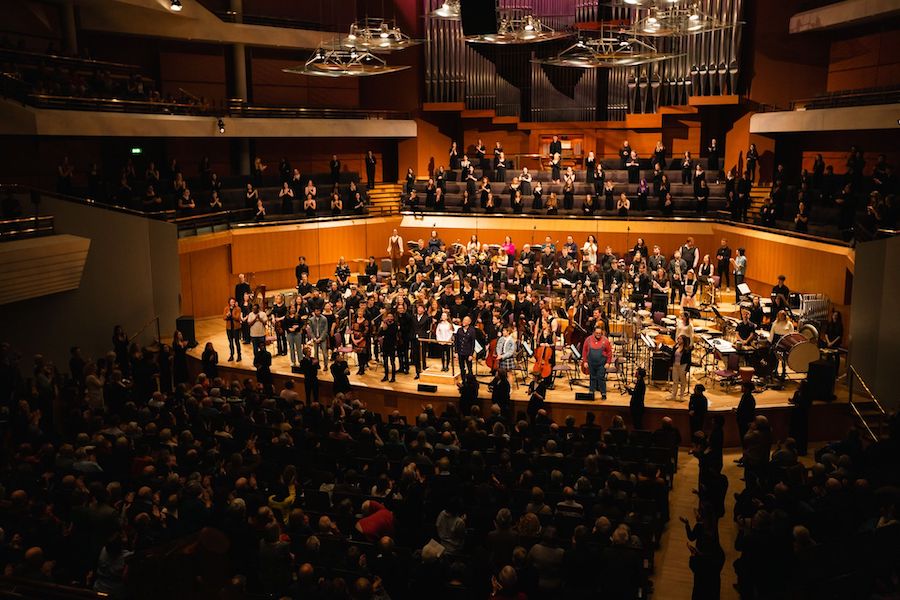
Leonard Bernstein’s Mass is a groundbreaking musical composition that explores the intersection of religion and society through a modern interpretation of the Catholic Mass.
The piece was commissioned by Jacqueline Kennedy Onassis for the opening of the John F. Kennedy Center for the Performing Arts in Washington, D.C., and was written between 1968 and 1971.
Sunday’s performance marked the first time Mass was played in Manchester, and because of the number of performers involved, was a triumph of planning and execution.
Performed by the Royal Northern College of Music (RNCM) Symphony Orchestra and choirs from both Chetham’s School of Music and RNCM
The performance on Sunday afternoon featured over 250 participants, including a full symphony orchestra, RNCM’s band, RNCM’s Street Chorus, RNCM’s symphony Chorus and Chetham’s School of Music Choir.
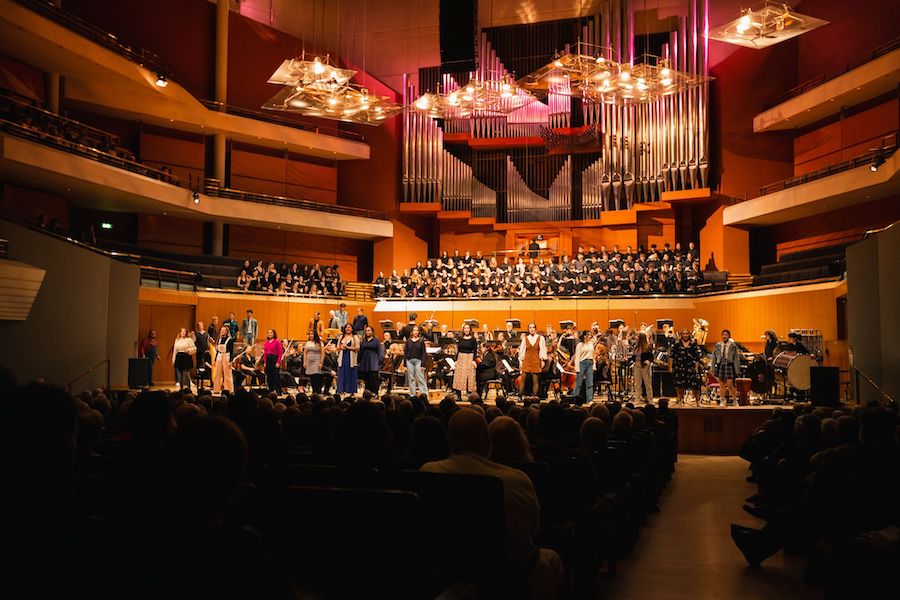
But without doubt, they pulled it off with skill, intensity and beauty worthy of the original.
The future of music in the city really does look bright with so much young talent on display, both from Chetham’s and Royal Northern College of Music.
Mass was performed in one swoop with no intermission, Bernstein wrote it this way because a mass doesn’t have an intermission so that forms part of the experience.
It flows from exploring traditional liturgical texts and then delves into themes of doubt, disillusionment, and faith.
And whether you’re a believer or not, the underlying message of peace, community and inclusion seems ever more relevant for the times we live in today.
The performance was all set within the wonderful settings of Bridgewater Hall, beautifully carried by the performers, both theatrical and engaging.
The Mass combines a range of musical genres, including classical, rock, and jazz, to create a unique and innovative sound.
The piece features a large orchestra, choir, and a cast of soloists, including a Celebrant who leads the Mass.
The Celebrant was William Dazely, who led the Mass with an emotive, powerful performance that drove the narrative forward.
You could feel the depth and power in his voice, full of passion and beauty.
One of the key themes of Mass is the relationship between religion and society.
Bernstein explores this theme through the use of contemporary elements such as rock music, which was often associated with countercultural movements in the late 1960s and early 1970s.
The piece also incorporates spoken word passages and a wide range of musical styles, creating a unique and eclectic sound that reflects the diversity of modern society.
The Orchestra was conducted by Clark Rundell, fresh from debuting at the Barcelona Symphony Orchestra, who has an interesting and varied CV, even working with Elvis Costello.
Another important theme of Mass is the concept of faith and doubt.
The second half of the performance explores these themes through a series of solo and ensemble pieces, which feature lyrics that express a range of emotions from disillusionment to hope.
The RNCM Street Chorus were amazing, and provided a real power and energy to the Mass, accompanying William Dazely and adding to the power of the performance with movement and beautiful voice.
This exploration of faith and doubt is a reflection of Bernstein’s own struggles with his Jewish faith and his interest in exploring the role of religion in contemporary society.
Overall, Leonard Bernstein’s Mass is a groundbreaking work of classical music that combines traditional liturgical texts with contemporary elements to create a modern interpretation of the Catholic Mass. The piece continues to inspire conversations about the role of religion and spirituality in contemporary society, and its enduring popularity is a testament to Bernstein’s ability to bridge the gap between high art and popular culture.
The “Mass” has a powerful message of reconciliation and redemption. It is a work that speaks to the human experience of doubt, despair, and ultimately, hope. It is a call to come together in unity, to find common ground and work towards a better future.
All of these elements combine to make Leonard Bernstein’s “Mass” a truly unique and fascinating work of art.
And one we may never see performed in Manchester again.
The standing ovation lasted for at least five minutes, and was well deserved.
- This article was last updated 2 years ago.
- It was first published on 16 March 2023 and is subject to be updated from time to time. Please refresh or return to see the latest version.
Did we miss something? Let us know: press@ilovemanchester.com
Want to be the first to receive all the latest news stories, what’s on and events from the heart of Manchester? Sign up here.
Manchester is a successful city, but many people suffer. I Love Manchester helps raise awareness and funds to help improve the lives and prospects of people across Greater Manchester – and we can’t do it without your help. So please support us with what you can so we can continue to spread the love. Thank you in advance!
An email you’ll love. Subscribe to our newsletter to get the latest news stories delivered direct to your inbox.
Got a story worth sharing?
What’s the story? We are all ears when it comes to positive news and inspiring stories. You can send story ideas to press@ilovemanchester.com
While we can’t guarantee to publish everything, we will always consider any enquiry or idea that promotes:
- Independent new openings
- Human interest
- Not-for-profit organisations
- Community Interest Companies (CiCs) and projects
- Charities and charitable initiatives
- Affordability and offers saving people over 20%
For anything else, don’t hesitate to get in touch with us about advertorials (from £350+VAT) and advertising opportunities: advertise@ilovemanchester.com

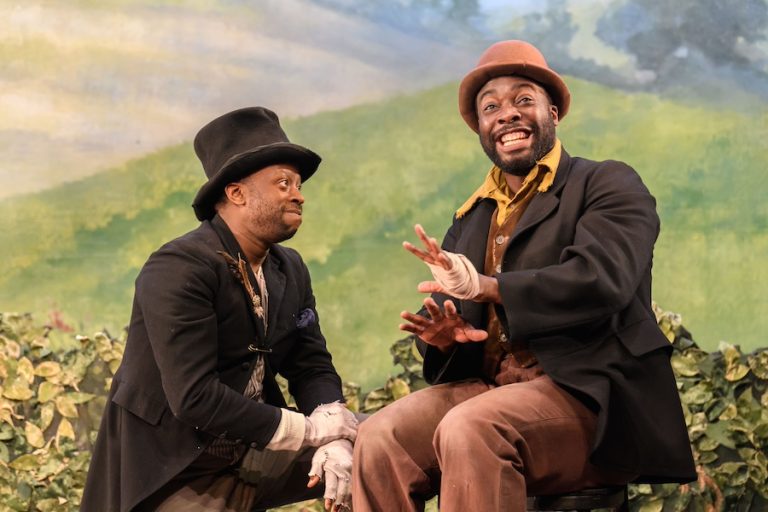
Review: Tambo & Bones at HOME is ‘ambitious, bold, gutsy…. and terrific’
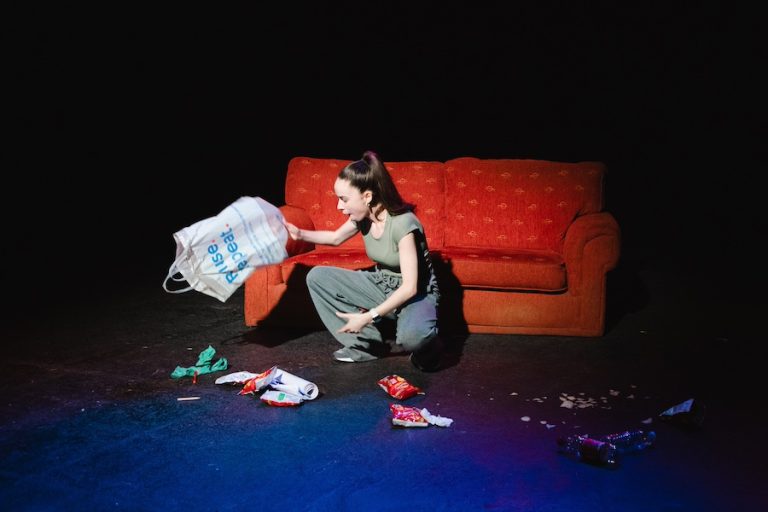
Review: JB Shorts 26 at 53two is ‘a five-star showcase of northern talent’











